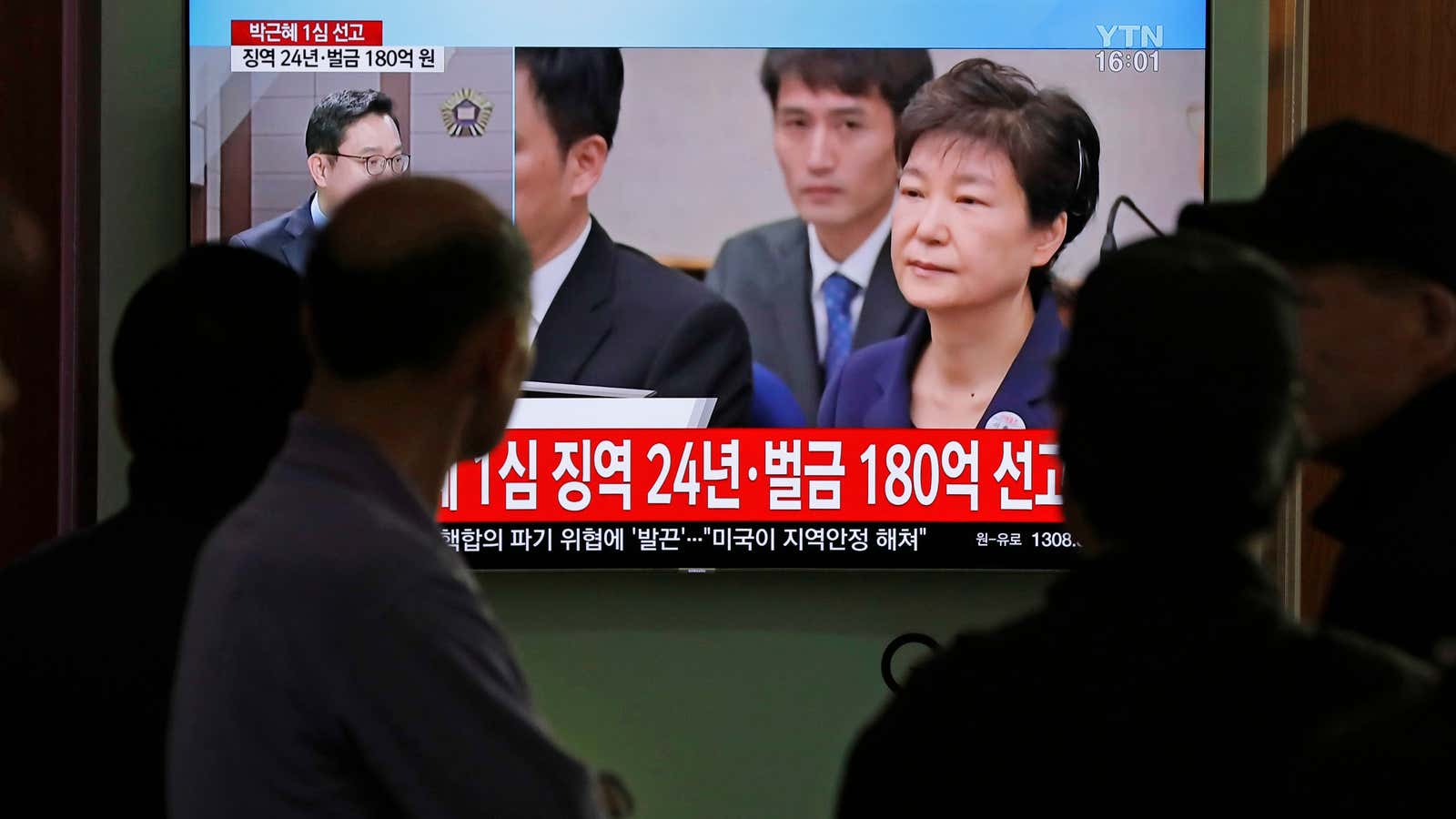During the presidency of now-impeached leader Park Geun-hye, signing a document critical of her government was enough for anyone working in the arts to be blacklisted.
The full details of that blacklist was made public for the first time today (April 10) by a civilian-government truth committee, South Korea’s Yonhap news agency reported. Displaying the 60-page blacklist publicly for the first time, the committee said that the thousands of artists on the list—9,473 in total—were excluded from state funding simply for voicing criticism of Park’s handling of a ferry sinking that killed hundreds of young people in 2014, or for showing support for rival political parties.
The blacklist was dated May 2015, just months before the start of a year-long cultural exchange program between Korea and France. The committee said that the government had ordered certain artists to be excluded from being featured in the project, for example Han Kang (link in Korean), author of 2016 Man Booker International Prize winner The Vegetarian.
The cultural blacklist was made known in late 2016, after Korean media uncovered Park’s connections to a shady female confidante and their involvement in a vast bribery and influence-peddling scheme that implicated many of the country’s biggest companies. Park was removed from office in early 2017 after being impeached, and was last week sentenced to 24 years in prison on 16 charges, including abuse of power and coercion for planning and ordering the blacklist. Park has denied the charges and has the right to appeal the sentence.
Seven of Park’s former aides have also been convicted and handed prison sentences for their roles in drawing up the blacklist.
So extensive and damaging was the blacklist that it managed to diminish one of Asia’s biggest film festivals for years. Organizers of the 2014 Busan International Film Festival (BIFF) decided to air a documentary on the sinking of the Sewol ferry that was critical of the government’s handling of the accident. According to media reports, Busan mayor and BIFF chairman Suh Byung-soo, a politician close to Park, tried to pull the film from the festival. BIFF later suffered massive cuts to its funding and its then-director was charged with embezzlement, which the festival alleged was politically motivated.
Park’s handling of the Sewol tragedy has been the subject of intense scrutiny, particularly the question of what she was doing on the morning of April 16, 2014 and in the seven hours that followed. Prosecutors said last month that Park was with her close friend Choi that morning, and was having her hair and make-up done as the ferry was sinking.
